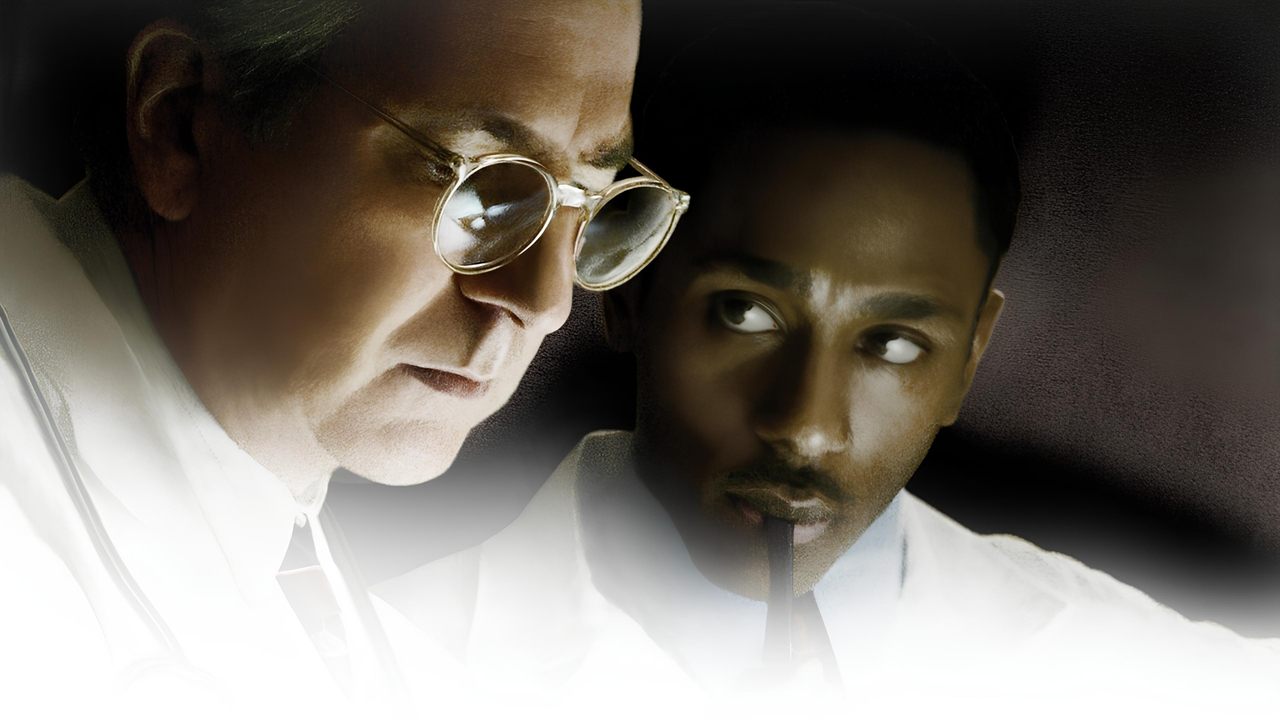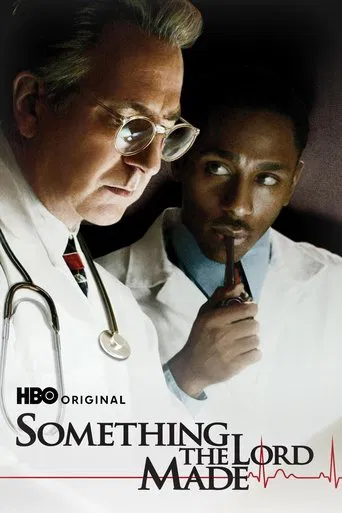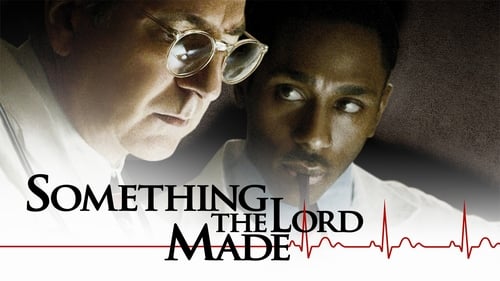


I love this movie how it was portrayed being a blue baby myself It's nice to know who bright mind came up with this process if not for this procedure I would not be here it's a very touching, informational, I had this procedure & the Fontan I'm now 26 yrs old and its tough but i am glad to be alive & the experience I've had in my life this long I'm now trying to get a heart transplant but I must drop weight so I am in heart failure but my doctor's are still taking great care of me. My doctor has been with me from the beginning I'm so Thankfully for all doctor's, nurse's & all people in the medical field. Thank you for shining light on how this became to be. blue baby Mia
... View MoreIt is 1930 in the deep South, and Vivien Thomas (Mos Def), who always dreamed of becoming a doctor, has just been fired from his job as a carpenter. Hired to clean the lab cages for the arrogant Dr. Blalock (Alan Rickman), Vivien quickly demonstrates a rare affinity for medicine and a knack for making improvised surgical instruments. Blalock appreciates his unusual skills and takes Vivien with him when he moves to Johns Hopkins University, where, together, they work to save dying "blue babies." It's been a long time since a movie touched me this much. This Emmy-winning HBO film is simply outstanding in every way; the script, based on a true story, is exciting and the actors are all excellent. I got the movie because of Alan Rickman, but it is Mos Def who is the real star. He gives a powerful performance as an idealistic young man hobbled by the injustices of segregation who perseveres to become a respected scientist. Though Vivien never attended college, he helped plan and assisted in the world's first open heart bypass surgery to correct blue baby syndrome in 1944.The Jim Crow era is recreated well, showing such a cruel and hopeless world that Vivien's accomplishments are nothing short of amazing. This is an exceptional movie, guaranteed to have you reaching for the tissues. Highly recommended.
... View MoreThis movie offers a surprisingly low-key account of the work of Dr. Alfred Blalock (Alan Rickman) and especially his assistant Vivien Thomas (Mos Def) who, working together, created the techniques that led to the first successful heart surgery in the world. It's ostensibly a medical movie, and it does include a lot of medical jargon which, in all honesty, was over my head although it made the point that this was truly revolutionary work they were pioneering. And yet, while the movie revolved around medical experiments and surgeries, it was much more than that. Without becoming a movie about the civil rights struggle, the movie was definitely set in that context. As a black man, Thomas (who wanted to go to medical school but couldn't afford it) had to deal with all the assorted challenges of living in that time - segregation, racism and a general lack of respect from those among whom he worked. Even Blalock, who obviously did respect Thomas and his knowledge and abilities and who did fight to improve Thomas' salary and working conditions, seemed to take him for granted at times, not understanding Thomas' reaction at being given no public credit for the work in which he had shared (and in which he was, in many ways, more knowledgeable of and more proficient in than Blalock.) The complexities of such an inter- racial partnership were well portrayed in one simple scene where Blalock shows up at Thomas' home one night. Thomas' wife tells him that in 12 years he's never come to their home; Blalock responds that in 12 years he's never been invited to come to their home. As closely as Blalock and Thomas worked, they were still two solitudes - the point was briefly but well made, and it has to be noted that both Rickman and Def were excellent in their respective roles.The conclusion was appropriate, as we finally see Thomas get the credit he deserved for his work, being granted an honorary doctorate by Johns Hopkins, where he and Blalock had perfected their heart surgery techniques and having his portrait hung on the wall beside Blalock's. One certainly couldn't call this an exciting movie, but it has important stories (medical, social and biographical) to tell. 7/10
... View MoreThis is a docudrama about the two people behind the first open heart surgery: Dr. Alfred Blalock (Alan Rickman) and Vivien Thomas (Mos Def). One of the many qualities of the film is how it gives enough technical medical details so that you can appreciate the ultimate achievement of the successful operation in 1944 - on a baby with a heart defect - but it does not dwell on the technical specifics to the extent that only a medical doctor could appreciate them. As interesting as the medical aspects are, the real strength of the movie lies in the character development of the two men and the depiction of the racism that Thomas had to endure. Sometimes I felt we were being hit over the head a little too hard with the racism angle (Blacks to the back of the bus, Thomas serving drinks at Blalock's social parties, documentary footage of blacks being hosed and attacked by dogs, Blacks having to enter through the hospital back doors, separate restrooms, and so forth), but that was what Thomas was facing at the time. At least he lived long enough to see the end of institutionalized racism and get some of the respect he deserved.Blalock was an interesting character. When Vivien was the janitor in his lab Blalock was interested enough in him as a person to find out that he had been a skilled carpenter. When Thomas showed some interest in Blalock's surgical experiments on animals, it occurred to Blalock that, given Thomas' background, he might have uncommon dexterity. When this turned out to be true, Blalock was open-minded enough to train Thomas to work with him on surgical procedures. When Blalock stands up for Thomas' working with him in the face of racist comments from colleagues and resists certain racist customs you are thinking that this is going to be one of those stories to warm the hearts of ardent liberals. But Blalock had either an insidious form of racism or such an ego that he could not seem to look much beyond how he could use Thomas to further his career. He could unreasonably fly into a rage when he thought that Thomas was not living up to his impossible expectations and he did not push for any promotions or pay raises for Thomas in spite of the fact that Thomas' skills were developing to equal or surpass Blalock's own. When Blalock's pioneering work received national recognition, he did not include mention of Thomas' contributions.When Blalock showed up at Thomas' house one night, Thomas' wife said to him, "In all the years that you have worked with Vivien you have never come to our house," and Blalock responded, "You never asked me." Trying to figure Blalock out and just what the bond was between these two men is quite a puzzle.I would have liked to know more about Thomas as a person. Whereas Blalock is presented warts and all I have the feeling that there was more to Thomas than the saintly image we get here.The final scene is very moving, where the faces of the actors resolve into the real portraits of the two men that now hang in the Johns Hopkins Medical Center.It is an unusual movie where you get a history lesson as well as an engaging character study.
... View More